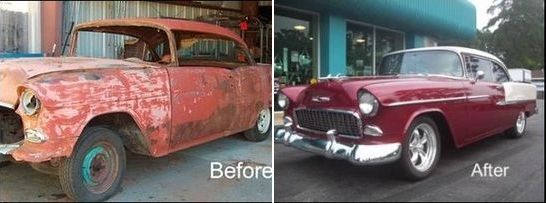So
when they had eaten breakfast, Jesus said to Simon Peter, “Simon, son of Jonah,
do you love Me more than these?” He said to Him, “Yes, Lord; You know that I
love You.” He said to him, “Feed My lambs.” (John 21:15)
The old car sits rusting in a field—an eyesore that
once roared down the highway. Then, one
day, someone buys the decaying carcass, takes it into his garage, where with
skilled hands, the vintage vehicle is restored—a classic car now turning heads
as it speeds again across the asphalt.
This is the message of the Gospel. It is what Christ will do to a life wrecked by
sin. Peter experienced such a
restoration as recorded in the twenty-first chapter of John’s Gospel. Three times he had denied Jesus and now three
times Christ asks him if he loves Him.
It was as Peter stood by the distinctive smell of a charcoal fire that
his failure occurred and it would be again beside a charcoal fire that Peter’s
forgiveness will be experienced. Peter’s
denials had been in public and now his repentance must be done in public as
well.
Each time, Jesus confronts Peter with the question, “Do you love Me?” followed by Peter’s
affirmation of that love and concluded with a commission by Christ. In the first case, Jesus asks if Peter loves
Him more than the other disciples do.
This took the fisherman’s mind back to when Jesus predicted that they
would all abandon Him in His hour of trial, and Peter’s response was to assure
the Lord that though the rest of the disciples did, he would stand firm. The Rock—for so his name meant—became Jello
and slid into the shadows. Now, his
bravado is banished and Peter makes no such claim to love Christ in a way
superior to his colleagues. He does say that he loves Jesus, but the love
Christ inquires about is agape—God’s kind of love—while Peter acknowledges a
lesser love using the word phileo—brotherly love. Humility has replaced his swagger after his
denials of Christ. Then Jesus told him
to prove it by feeding His lambs. Peter
would always recall this and later charge pastors to feed God’s flock with
Scripture (1 Pet.5:2). Our love for the
church equates to love for Christ—and will be expressed not by profession, but
action.
A second time Jesus confronts Peter—not asking about
his love in comparison to his comrades—instead targeting Peter’s love
specifically. Peter’s response is
identical; Christ’s is different. He
tells the fisherman to “Tend my sheep.” Shepherds are responsible not only to feed
the sheep, but lead the sheep—guiding them for they tend to wander and guarding
them for they are defenseless against predators. The specific term Jesus uses here means, “little
sheep.” In the first commission, He
refers to lambs and now little sheep—the next stage of their growth. God’s people need tending at every stage of
their spiritual development.
The final time Jesus condescends to meet Peter at his
level asking him if he indeed has phileo love for Him. Peter, doubtless under conviction over his
denials, is grieved and appeals to the Lord’s omniscience, “You know all things; You know that I love You.” Jesus again calls on Peter to feed his sheep—and
the word denotes a mature sheep. We
never grow beyond our need for the Word.
Jesus is in the restoration business. If you have failed, you can be forgiven—and brought
to a place of usefulness again.

2 comments:
A 1955 Chevy no less
My first car was a 56
Post a Comment